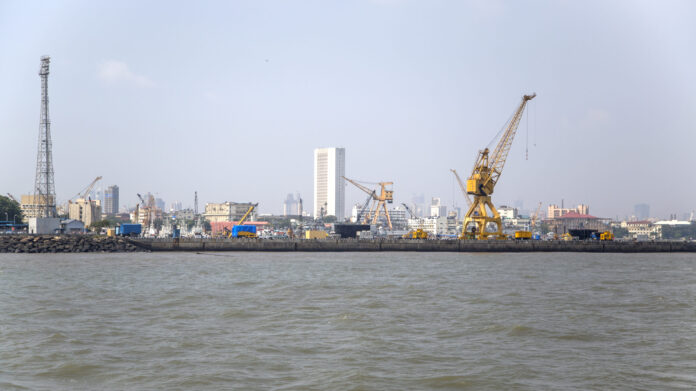Strategic and Commercial Ripples
By Thisara Kodagoda
In a move laden with commercial significance and geopolitical undertones, an Indian government-owned shipbuilding company has acquired a 51% controlling stake in Colombo Dockyard PLC, Sri Lanka’s premier shipbuilding and repair facility. The acquisition marks a decisive shift not only in Sri Lanka’s commercial maritime sector but also in the broader strategic dynamics of the Indian Ocean.
Colombo Dockyard, founded in 1974, has long been a flagship of Sri Lanka’s industrial capabilities. Strategically located within the Port of Colombo, it has built and repaired a range of vessels — from passenger ferries and offshore support ships to specialized vessels for regional navies and coast guards. Over the years, the shipyard has cultivated a reputation for quality and efficiency, serving clients across Asia and Europe.
The new controlling stakeholder is an Indian state-owned entity specializing in the construction of naval vessels and advanced commercial ships. The acquisition is notable for two reasons: it grants India significant influence over a critical maritime asset in a neighbouring country, and it inserts a new dynamic into an Indian Ocean region increasingly shaped by competition between India and China.
From a geopolitical perspective, the deal is deeply consequential. Colombo Dockyard is located less than 250 nautical miles from India’s southern coastline, giving New Delhi a logistical foothold in the maritime corridor that links the Malacca Strait with the Suez Canal — a route through which nearly two-thirds of the world’s oil shipments transit.
Over the past decade, Sri Lanka’s ports have drawn significant Chinese investment, most famously with the controversial 99-year lease of Hambantota Port to China Merchants Port Holdings. India has long viewed these moves with suspicion, concerned that they could enable a quasi-military Chinese presence in its strategic backyard. By securing control of Colombo Dockyard, India counters this trend and effectively reasserts its influence over Sri Lanka’s most developed shipyard.
Beyond mere symbolism, India’s involvement could also translate into practical naval benefits. The Indian Navy could potentially leverage Colombo Dockyard for ship repairs and maintenance, thereby extending its operational reach. It could also use the facility to build or refit patrol vessels destined for smaller Indian Ocean states, reinforcing New Delhi’s image as a net security provider in the region.
Impact on Sri Lanka’s commercial shipbuilding sector
For Sri Lanka, the acquisition brings opportunities alongside risks. On the positive side, integration with a larger Indian state-owned shipbuilder could inject much-needed capital, technology, and managerial expertise into Colombo Dockyard. This could help the yard upgrade facilities, diversify its product portfolio, and compete more effectively with regional rivals such as Singapore and South Korea.
Moreover, the deal may facilitate entry into defence shipbuilding projects that Sri Lanka might previously have struggled to win on its own. Given the growing demand for coastal surveillance vessels, offshore patrol vessels, and other specialized craft among small and mid-sized navies, Colombo Dockyard could position itself as a niche player.
However, the acquisition may also constrain Sri Lanka’s foreign policy flexibility. As the shipyard becomes more integrated into Indian defence supply chains, Colombo may find it politically challenging to pursue naval contracts from countries perceived as unfriendly to India. This could limit Sri Lanka’s ability to act as a truly neutral commercial hub.
In sum, the acquisition of Colombo Dockyard by an Indian government-owned shipbuilder is more than a corporate transaction, it is a strategic recalibration. For India, it represents a successful attempt to balance China’s rising influence on the island. For Sri Lanka, it offers both a commercial lifeline and a geopolitical balancing act.
As great-power competition intensifies in the Indian Ocean, Colombo Dockyard could emerge as a symbol of how shipyards and ports are no longer just industrial assets, but vital pieces on the evolving chessboard of Asian geopolitics.




